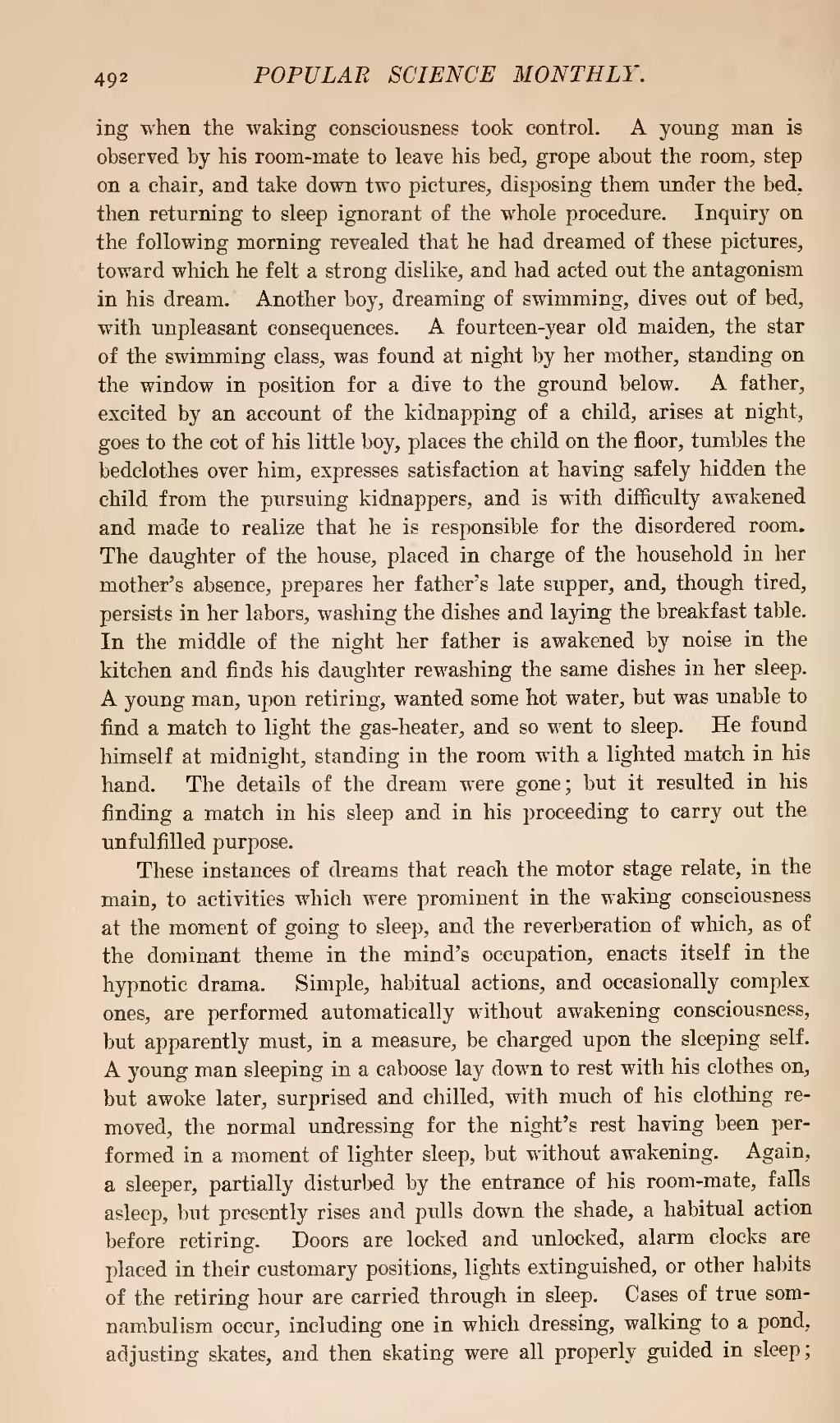ing when the waking consciousness took control. A young man is observed by his room-mate to leave his bed, grope about the room, step on a chair, and take down two pictures, disposing them under the bed, then returning to sleep ignorant of the whole procedure. Inquiry on the following morning revealed that he had dreamed of these pictures, toward which he felt a strong dislike, and had acted out the antagonism in his dream. Another boy, dreaming of swimming, dives out of bed, with unpleasant consequences. A fourteen-year old maiden, the star of the swimming class, was found at night by her mother, standing on the window in position for a dive to the ground below. A father, excited by an account of the kidnapping of a child, arises at night, goes to the cot of his little boy, places the child on the floor, tumbles the bedclothes over him, expresses satisfaction at having safely hidden the child from the pursuing kidnappers, and is with difficulty awakened and made to realize that he is responsible for the disordered room. The daughter of the house, placed in charge of the household in her mother's absence, prepares her father's late supper, and, though tired, persists in her labors, washing the dishes and laying the breakfast table. In the middle of the night her father is awakened by noise in the kitchen and finds his daughter rewashing the same dishes in her sleep. A young man, upon retiring, wanted some hot water, but was unable to find a match to light the gas-heater, and so went to sleep. He found himself at midnight, standing in the room with a lighted match in his hand. The details of the dream were gone; but it resulted in his finding a match in his sleep and in his proceeding to carry out the unfulfilled purpose.
These instances of dreams that reach the motor stage relate, in the main, to activities which were prominent in the waking consciousness at the moment of going to sleep, and the reverberation of which, as of the dominant theme in the mind's occupation, enacts itself in the hypnotic drama. Simple, habitual actions, and occasionally complex ones, are performed automatically without awakening consciousness, but apparently must, in a measure, be charged upon the sleeping self. A young man sleeping in a caboose lay down to rest with his clothes on, but awoke later, surprised and chilled, with much of his clothing removed, the normal undressing for the night's rest having been performed in a moment of lighter sleep, but without awakening. Again, a sleeper, partially disturbed by the entrance of his room-mate, falls asleep, but presently rises and pulls down the shade, a habitual action before retiring. Doors are locked and unlocked, alarm clocks are placed in their customary positions, lights extinguished, or other habits of the retiring hour are carried through in sleep. Cases of true somnambulism occur, including one in which dressing, walking to a pond, adjusting skates, and then skating were all properly guided in sleep;

